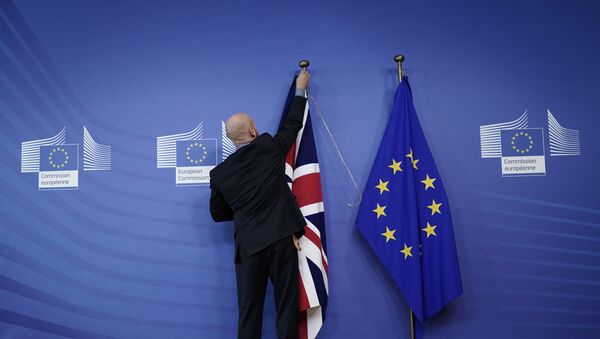The report was sent to Prime Minister Boris Johnson’s office 17th October, but it won’t be released prior to parliament being dissolved 6th November.
The lackadaisical approach by ministers to its publication has led some parliamentarians to cry conspiracy, including Committee Chair Dominic Grieve, former attorney general, demanding Downing Street clear the report for publication ahead of the December 12 general election, and branding the premier’s failure to do so “really unacceptable” in a point of order in the House of Commons 31st October.
“We have a Committee of Parliament waiting to lay before the House a report that comments directly on what has been perceived as a threat to our democratic processes. Parliament and the public ought to and must have access to this report in the light of the forthcoming election,” he argued.
BBC Diplomatic Editor Mark Urban – who once served in the same tank regiment as Pablo Miller, Sergei Skripal’s MI6 recruiter, handler and neighbour in Salisbury, and miraculously interviewed the former double agent in the year prior to the March 2018 Salisbury incident – also strongly implied something sinister was afoot.
Writing for the British state broadcaster’s website 1st November, Urban said a government spokesperson told him the report wasn’t yet ready for release as there are a number of administrative stages and processes reports containing sensitive information must go through before they’re published, which “usually takes several weeks to complete".
However, Urban claimed the draft report would’ve already been vetted by intelligence agencies before its referral to Downing Street “if previous practice has been followed”, and “people familiar with the committee's workings” told him “10 days should’ve been adequate for this”. While the obvious insinuation is the report is being consciously withheld due to its damaging contents, Urban noted towards the end of the piece it was “not believed” the draft report had even reached Johnson's desk as of 31st October.
Moreover, the veteran BBC journalist “previous disclosures” indicated “these Russian activities didn’t match the scale of those directed against the 2016 US presidential election” – although what disclosures he was referring to isn’t clear, especially given BuzzFeed’s sources unequivocally state “no evidence was found to substantiate” the notion of Russian interference.
— Carole Cadwalladr (@carolecadwalla) November 1, 2019
BuzzFeed’s report has caused some consternation in certain quarters, with some – most prominently The Observer’s conspiracy-theorist-in-chief Carole Cadwalladr – suggesting the outlet’s anonymous sources are Downing Street insiders attempting to downplay the significance of the Committee’s findings for their own cynical ends. Such speculation is of course moot until the report’s release, although if the document does in the event amount to a damp squib, it’ll hardly be surprising.
Among those condemning Whitehall’s failure to publish the report is Labour MP Ben Bradshaw, somewhat infamously the first mainstream voice to allege the Russian state interfered decisively in the June 2016 referendum on the UK’s European Union membership.
— Ben Bradshaw (@BenPBradshaw) October 31, 2019
He claimed in December that year Kremlin hackers “probably swayed the Brexit vote” – but despite failing to offer supporting evidence of any kind, his charge was duly taken up by Collins in his role as parliament’s Digital, Culture, Media and Sport Committee chair.
At his request, Facebook investigated whether pages and accounts associated with St. Petersburg’s Internet Research Agency purchased any advertisements on the social network before or during the referendum campaign – three ads, not explicitly related to the EU referendum but to immigration, which the cost the alleged IRA assets $0.97 to promote, were identified. Evidently disappointed, Collins merely asked Facebook to look harder.

